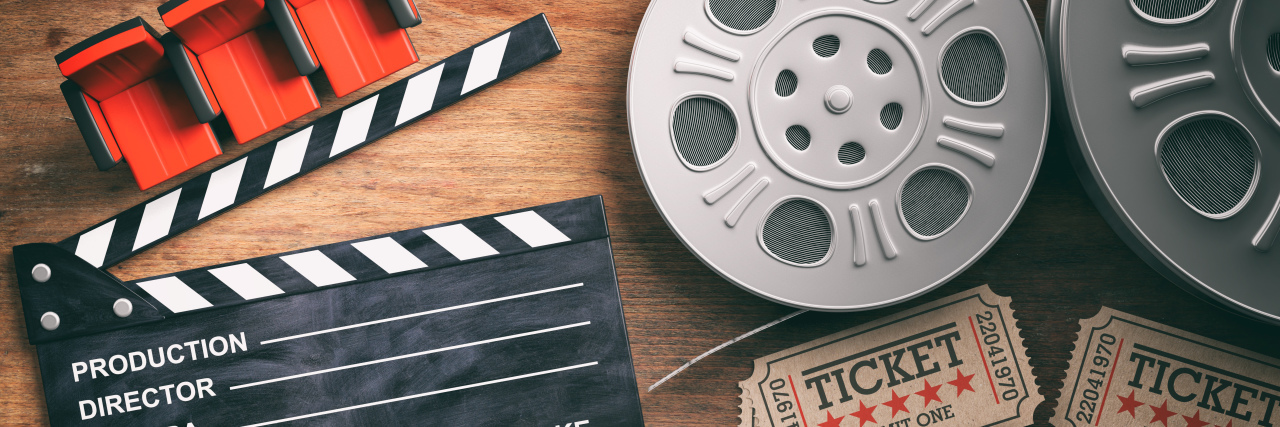Eye-opening, validating, and a sense of pride. That’s how my experience virtually attending the ReelAbilities Film Festival: New York from May 1 – May 5 for the first time left me feeling. ReelAbilities Film Festival: New York is “the largest film festival in the country dedicated to promoting awareness and appreciation of the lives, stories, and artistic expressions of people with disabilities.” It was founded by Marlene Meyerson JCC Manhattan in 2007. Over the years it has expanded to offering the weeklong festival full of a wide range of international film selections, conversations, and performances across 19 cities throughout the United States, Canada and South America.
As a 36-year-old autistic biracial Black transman with multiple disabilities who is a mixed media artist and loves movies, I enjoy films, but don’t expect to see myself authentically represented on the screen. So, when I got the chance to attend the ReelAbilities Film Festival: New York, I had no idea what to expect. I had never heard of this film festival before, but I was excited to see if the experience was what it advertised itself to be: view some films and experience something new.
Here are four takeaways from my experience:
1. Artistic expression is a powerful tool for promoting awareness, appreciation and authentic representation.
Yes, that’s it! Wow! That summarized my reaction after virtually attending Shorts Program 1, which consisted of four films including “Verisimilitude,” “Single,” “Wiggle Room,” and “How Much Am I Worth?” These were the first films I watched during the film festival and they left me feeling more seen and understood as a person with multiple disabilities. The experiences I have tried explaining to others, sharing why I advocate, and why authentic representation matters were all shared beautifully in these films. I even got to share the experience and some of the films with other family members to help them better understand my experiences that have been hard for them to understand.
2. Providing for everyone’s access needs is a balancing act.
Being autistic with multiple disabilities, I have multiple types of access needs. Sometimes I find my own access needs conflict with each other and I have to prioritize what the most important access need is at that moment. Attending the ReelAbilities Film Festival: New York was the first time I saw multiple forms of accessibility built into different forms of film, including documentaries and short films, and non-film programming. Accessibility options such as open caption, CART (live transcription), ASL interpretation, and audio description were available across the film festival experience.
I am new to audio description in film and there was a learning curve in how I could interact with the film without experiencing intense audio sensory overload. Once I found the right set of earplugs to bring the volume down and mixed with the captions and live transcription, I was able to enjoy watching the films and interacting with directors through the Q & A sessions. I was also able to learn about and interact with other accessibility features I was unaware of before.
3. The film industry as a whole can learn a lot from the ReelAbilities Film Festival.
The film industry as a whole continues to receive flack for lack of diversity, lack of representation of minority communities in the industry, and lack of authentic representation in film. It leaves me feeling unseen and unvalued. It also leaves me often disappointed and angry at the continued stereotypical portrayals and the problematic film scenes that still continue in the film industry for the disability community. But every aspect of the ReelAbilities Film Festival highlights inclusion, accessibility, and how to show people they are more than just a number to fill a diversity quota — they are actually valued.
4. People with disabilities can act — period.
From documentaries to feature films to musicals and shorts, persons with disabilities can represent themselves in film, play a character and act. The films, performances, Q & A panels with directors and more challenge the still-common notion that persons with disabilities are not fully able to fulfill acting roles, which is used to justify casting non-disabled people as disabled characters. But, this just isn’t the case, and the ReelAbilities Film Festival is a reminder and affirmation that persons with disabilities can act — period.
Getty image by Rawf8.

